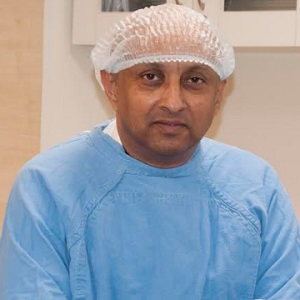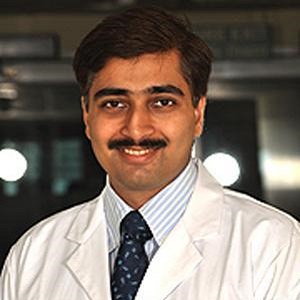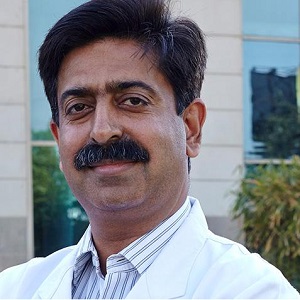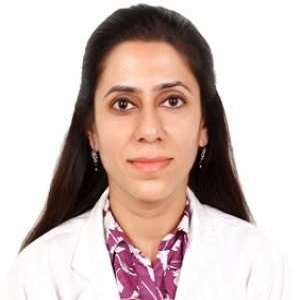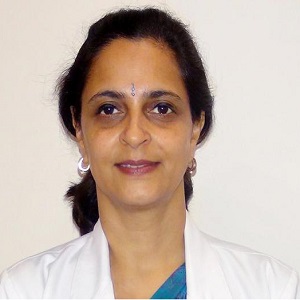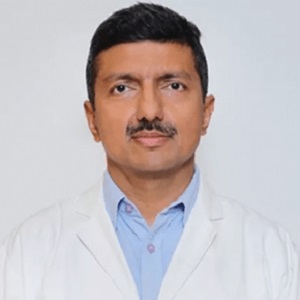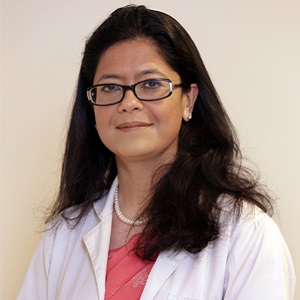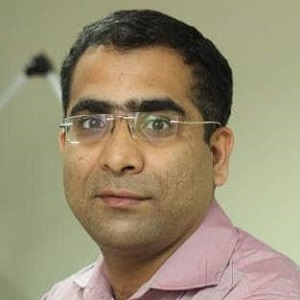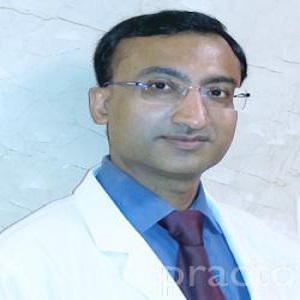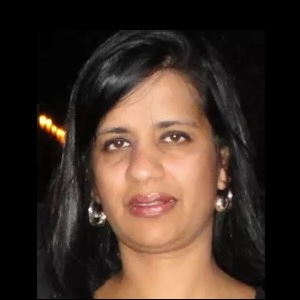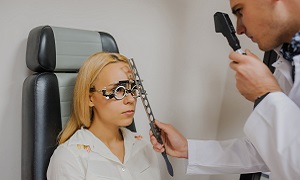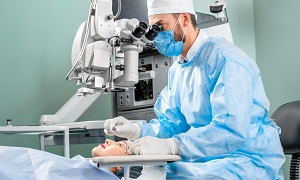Best Doctors in India for Cataracts treatment
- Ophthalmologist, Eye Surgeon, Gurugram, India
- Over 36 years’ experience
- Medanta-The Medicity, Gurgaon
Profile Highlights:
- Dr. Sudipto Pakrasi is an immensely talented and extremely popular Cataract Surgeon, famous for operating on most of the celebrities in India.
- Known to be one of the finest Ophthalmic Surgeons in the country, Dr. Sudipto Pakrasi has made significant strides in the field of eye surgery in the past 36 years.
- Currently, he is serving as the Chairman of the Ophthalmology Division at Medanta – The Medicity, Gurugram.
- He has led a team in performing over 3,000 Femto Laser Cataract Surgeries and is renowned for his expertise in treating cataract, refractive, and corneal diseases.
- Eye Surgeon, Ophthalmologist, Gurugram, India
- Over 15 years’ experience
- Artemis Hospital, Gurgaon
Profile Highlights:
- Dr. Sameer Kaushal is an experienced Ophthalmologist specializing in both cornea and cataract treatments. Currently serving as the Head of Ophthalmology and Organ Transplant at Artemis Hospitals in Gurugram, Dr. Kaushal brings extensive expertise and dedication to his role.
- Dr. Kaushal is known for his advanced techniques in eye surgery, including sutureless corneal transplants and artificial corneas. His clinical focus encompasses a wide range of eye conditions, from corneal disorders and ocular surface issues to refractive surgeries like LASIK and cataract treatments.
- He is also adept at handling pediatric ocular disorders, including pediatric cataracts.
- Ophthalmologist, Eye Surgeon, Gurugram, India
- Over 18 years’ experience
- Fortis Memorial Research Institute
Profile Highlights:
- Dr. Neeraj Sanduja is a well-trained Ophthalmologist, with huge experience in the management of vitreoretinal conditions. Currently, he is serving as a Senior Consultant in Ophthalmology at Fortis Hospital, Gurgaon.
- He is known to perform around 60 FFA and 75 Lasers treatments in OPD in a month. He is actively involved in ROP screening and treatment awareness programs.
- His previous experience includes a stint at William Beaumont Hospital, Michigan, the USA as a Visiting Fellow in Paediatric Retina.
- Top Ophthalmologist | Max Hospital, Saket, New Delhi, India
- Over 28 years’ experience
- Max Super Specialty Hospital, Saket, New Delhi
Profile Highlights:
- Dr. Sonika Gupta is a highly respected Ophthalmologist with over 28 years of experience in the field of ophthalmology.
- Currently serving as the Associate Director and Senior Eye Surgeon at Max Healthcare, she is known for her exceptional skills in cataract surgery, LASIK, and cornea treatments.
- Dr. Gupta specializes in a wide range of eye surgeries, including advanced procedures like femtolaser cataract surgery, Micro PHACO, LASIK, PRK, and corneal transplants.
- She is adept at performing delicate cornea and anterior segment surgeries and lasers. As a certified LASIK surgeon, she is proficient in both Microkeratome and Femtosecond LASIK technologies.
- Top Ophthalmologist | Max Hospital, Saket. New Delhi, India
- 23+ Years Experience
- Max Super Specialty Hospital, Saket, New Delhi
Profile Highlights:
- Dr. Anita Sethi is a well-known eye surgeon in India with over 23 years of expertise in delivering comprehensive eye care.
- Specializing in Cataract and Refractive surgery, as well as all facets of Oculoplastic Surgery and Ocular Oncology, Dr. Sethi is recognized for her pioneering work in intraocular tumors and innovative treatments like Selective Intra-arterial Chemo (IAC) and Plaque brachy treatment, aimed at preserving vision.
- Dr. Sethi’s dedication extends to rehabilitating trauma cases, particularly war injuries and acid burn victims, reflecting her compassionate approach to patient care.
- Top Ophthalmologist | Max Hospital, Saket, Gurugram, India
- 30+ Years Experience
- Max Super Specialty Hospital, Saket, New Delhi
Profile Highlights:
- Dr. Sanjay Dhawan is one of the best ophthalmologists in Gurugram. In 1998 he was appointed as Assistant Professor of Ophthalmology at Manipal College of Medical Sciences, Nepal, and associated Himalaya Eye Hospital, a project of FECH of The Netherlands.
- Dr. Dhawan was also among the first to popularize the technique of SICS for mass application in New Delhi, and he probably was also the first to introduce a modified Topical Anesthesia to perform SICS. The large-scale surgical experience helped him refine the surgeries of Phacoemulsification, MICS (Phakonit), LASIK, Supra-Whitnall’s Resection of LPS for Ptosis, etc.
- Eye Surgeon, Ophthalmologist, New Delhi, India
- Over 25 years’ experience
- Fortis Memorial Research Institute
Profile Highlights:
- Dr. Parul M Sharma is a highly esteemed ophthalmologist with a distinguished career spanning over 25 years.
- Dr. Sharma has augmented her expertise through training at esteemed institutions including Moorfield Eye Hospital in London, LV Prasad Eye Institute in Hyderabad, and the Singapore National Eye Centre.
- Specializing in a wide spectrum of ophthalmic disciplines, Dr. Sharma’s areas of expertise encompass Glaucoma management, advanced Cataract surgeries (including FEMTO BLADELESS and Micro Phacoemulsification), Refractive surgery (such as FEMTO BLADELESS Lasik, PRK, and Phakic ICL), Squint correction, treatment of Keratoconus, as well as Pediatric and other Anterior Segment Surgeries and Laser procedures.
- Ophthalmologist, Eye Surgeon, Gurugram, India
- Over 20 years’ experience
- Artemis Hospital, Gurgaon
Profile Highlights:
- Dr. Naginder Vashisht underwent observership in Vitreo-retina and ocular trauma under the guidance of Dr. Robert Morris, MD at Retina Specialist of Alabama, USA. Furthermore, he obtained his fellowships from the International Council of Ophthalmology (London) and the Royal College of Physicians and Surgeons of Glasgow.
- Dr. Vashisht’s area of interest in Ophthalmology includes Phacoemulsification, Uvea, Vitreo-retina, and Ocular trauma, and he also has numerous complex and advanced retinal surgeries to his credit. His specialization is in the management of diabetic eye conditions, eye trauma, and retinopathy of prematurity.
- Top Ophthalmologist | Max Hospital, Saket, New Delhi, India
- 20+ Years Experience
- Max Super Specialty Hospital, Saket, New Delhi
Profile Highlights:
- Dr. Nikhil Pal did a vitreoretinal fellowship from the University of Wisconsin, Madison, USA.
- As a Senior resident, Dr. Nikhil Pal has independently performed various basic as well as advanced Vitreoretinal surgeries including retinal detachment, vitreous hemorrhage, macular hole, dropped nucleus removal, and gained expertise in medical retina involving Fluorescein angiography/Lasers for diabetic retinopathy, ARMD, vasculitis, ROP and Phacoemulsification cataract surgery among others.
- Top Ophthalmologist | Apollo Hospital, New Delhi, India
- 23+ Years Experience
- Indraprastha Apollo Hospital, New Delhi
Profile Highlights:
- Dr. Uma Mallaiah is a well-known skilled Ophthalmologist and General Physician with 23 years of clinical experience.
- Having attained her educational qualifications from renowned national and international medical institutions, she holds expertise in a number of procedures including Glaucoma treatment, Ectropion, Entropion, LASIK surgery, Phacoemulsification Surgery (MICS), Refractive Surgery as well as Evisceration with Orbital Implant.
- Throughout her career, Dr. Mallaiah is credited with successfully performing 3500 cataract surgeries and 500 glaucoma surgeries. She has also worked with Apollo to set up an Eye Department in Dubai.
- Apart from this, Dr. Uma Mallaiah has also been involved in corporate and international marketing along with organizing camps at the American embassy, Hero Honda, and Indian Oil Corporation.
Best Hospitals in India for Cataracts treatment
- City: Gurugram, India
Hospital Highlights:
- One of India’s best and largest multi-specialty hospitals, Medanta was built with the aim to bring India to the highest standards of medical care. The hospital has been providing the best medical services to its patients, since its inception, with care, commitment, and compassion.
- Equipped with 1250 beds, the hospital was founded by Dr. Naresh Trehan in the year 2009 with an aim to provide the best medical care at affordable costs. The hospital is spread across 43 acres and includes 45 operation theatres and 350 beds dedicated solely to ICU. The hospital includes over 800 doctors, and more than 22 specialty departments and has a dedicated floor for individual specialty in order to offer the best services under one roof.
- The hospital is considered one of the premier institutes in India for Cardiac Care and includes staffs and members of high caliber. The hospital has 6 distinct centers of excellence.
- City: Gurugram, India
Hospital Highlights:
- Artemis Hospital, established in 2007 in Gurugram, India, is a leading multi-specialty institution known for its excellence in patient care and advanced medical technology, offering comprehensive services across specialties like Cardiology, Oncology, Neurology, Orthopedics etc.
- Renowned for its patient-focused care, Artemis Hospital combines state-of-the-art infrastructure with a team of internationally trained doctors and surgeons, ensuring the highest standards of medical treatment.
- Accredited by JCI and NABH, Artemis Hospital meets global healthcare quality and safety standards, reflecting its commitment to providing compassionate, personalized care.
- The hospital is recognized for utilizing cutting-edge diagnostic and ther*peutic techniques, ensuring patients receive accurate diagnoses and effective treatments tailored to their needs.
- City: Chennai, India
Hospital Highlights:
- The Apollo Proton Cancer Centre in Chennai is the most sought-after private cancer hospital in India. It is an integrated facility that provides cutting-edge, all inclusive cancer treatment to patients all over the globe.
- The hospital is a part of the renowned Apollo Group which has a large network of over 74 hospitals in India and across the globe. Out of the 74 hospitals, 21 of them are cancer centres. However, Apollo Proton Cancer Centre is the only cancer hospital to have JCI accreditation.
- The Centre, which was established on the principles of excellence and expertise, unites a formidable medical staff led by some of the most illustrious figures in cancer treatment.
- The hospital follows the global ASTRO Model Policy. It is the same global policy which is followed by countries like USA, UK, and Europe.
- Apollo Proton Cancer Centre is among the very few hospitals in India to receive patients from First World countries such as USA, Canada, New Zealand, Australia, Singapore, Thailand, etc.
- Apart from that, it is also the first hospital in Chennai to receive patients from several countries like Uzbekistan, Kazakhstan, Turkmenistan, Georgia, Armenia, Azerbaijan, SAARC countries (Bangladesh, Nepal, Sri Lanka, Maldives, Bhutan, Afghanistan, and Pakistan), South Africa, Turkey, Egypt, etc.
- In fact, there is a dedicated team at the Apollo Proton Cancer Centre that serves only international patients. Thus, on a monthly basis, the Centre receives patients from across 32 countries.
- Moreover, there are certain treatments in Apollo Proton Cancer Centre that are not available in any other centre. APCC addresses all types of possible cancers that are usually not covered by any other centre.
- City: New Delhi, India
Hospital Highlights:
- Over the last 33 years, the Fortis Escorts Heart Institute has set new standards in cardiac treatment with groundbreaking research. It is now known around the world as a centre of expertise for Cardiac Bypass Surgery, Interventional Cardiology, Non-invasive Cardiology, Paediatric Cardiology, and Paediatric Cardiac Surgery.
- The hospital has cutting-edge laboratories that perform a wide range of diagnostic tests in Nuclear Medicine, Radiology, Biochemistry, Haematology, Transfusion Medicine, and Microbiology.
- Fortis Escorts Heart Institute boasts a diverse group of bright and experienced doctors who are backed up by a team of highly qualified, experienced, and devoted support professionals as well as cutting-edge equipment such as the recently installed Dual CT Scan.
- Approximately 200 cardiac doctors and 1600 personnel currently collaborate to manage over 14,500 admissions and 7,200 emergency situations each year. The hospital now has a 310-bed infrastructure, as well as five cath labs and a slew of other world-class amenities.
- City: Gurugram, India
Hospital Highlights:
- Fortis Memorial Research Institute (FMRI) is a premier multi-super-specialty, quaternary care hospital, known for its exceptional international faculty, top-tier clinicians, super-sub-specialists, and specialized nurses, all supported by cutting-edge technology.
- It is the flaship hospital of Fortis Healthcare Limited, part of IHH Healthcare Berhad, a leading integrated healthcare services provider in India. As one of the country’s largest healthcare organizations, Fortis operates 28 healthcare facilities with over 4,500 operational beds (including O&M facilities) and more than 400 diagnostic centers (including joint ventures).
- Recognized as one of the top hospitals in India, FMRI serves as a leading referral center and aspires to be the ‘Mecca of Healthcare’ for India and beyond. Its 11-acre campus is a testament to its commitment to providing world-class healthcare.
- Accredited by JCI and NABH, FMRI is dedicated to maintaining the highest standards of healthcare quality and safety, ensuring that every patient receives the best possible care. The hospital’s reputation is further enhanced by its state-of-the-art facilities and innovative medical practices.
- City: New Delhi, India
Hospital Highlights:
- The Indian Spinal Injuries Center (ISIC), provides state-of-the-art facilities for the management of all types of spinal ailments.
- Staffed with internationally trained, acclaimed, and dedicated spine surgeons, the hospital provides cutting-edge medical & surgical technology. The hospital provides comprehensive management of spinal injury, back pain, spinal deformities, tumors, osteoporosis, etc.
- The hospital performs motion-preserving spine surgeries including disc replacement and dynamic fixation, and minimally invasive spine surgeries such as endoscopic disc excision.
- The orthopedic service of the hospital covers all orthopedic ailments including trauma, joint diseases & replacements, oncology, pediatric orthopedics & upper limb ailment.
- City: Faridabad
Hospital Highlights:
In the sprawling city of Faridabad, where healthcare needs are diverse and ever-evolving, one institution has consistently stood out as a beacon of excellence in the field of medicine—Marengo Asia Hospital. Established with a vision to provide world-class healthcare services to the community it serves, Marengo Asia Hospital has emerged as a trusted name synonymous with quality, compassion, and innovation in healthcare.
- City: New Delhi, India
Hospital Highlights:
- Indraprastha Apollo Hospital is a 700-bedded multispecialty hospital in the heart of the capital of India. It is a part of Apollo Hospital group, one of India’s most reputed healthcare chains. Indraprastha Apollo Hospital has been accredited by Joint Commission International, making it the first internationally accredited hospital in the country in 2005.
- There are 52 specialties in the hospital with one of the best cardiology centers in the country. The hospital is also equipped with State of the art infrastructure facilities with the largest Sleep Lab in Asia and the largest number of ICU bed facilities in India.
- The latest and highly advanced technologies that are installed in the hospital include Da Vinci Robotic Surgery System, PET-MR, PET-CT, Cobalt-based HDR, Brain Lab Navigation System, Tilting MRI, Portable CT scanner, 3 Tesla MRI, 128 Slice CT scanner, DSA Lab, Endosonography, Hyperbaric Chamber and Fibro scan.
- City: New Delhi, India
Hospital Highlights:
- One of the well-regarded providers in India committed to the highest standards of clinical excellence and patient care, Max Super Specialty Hospital is a part of Max Healthcare, which is the second-largest healthcare chain in India. Regarded as one of the most well-regarded healthcare providers in the country, Max Super Specialty Hospital is committed to the highest standards of clinical excellence as well as patient care. The hospital is also equipped with the latest technology as well as cutting-edge research. The hospital is known to deliver and ensure the highest level of patient care.
- The hospital has more than 500 beds and offers treatment for over 35 specialties. The hospital also holds the credit of having installed the first Brain Suite in Asia. This is a highly advanced Neurosurgical machine that allows MRI to be taken while surgery is ongoing.
- Other advanced and latest technologies are also installed in the hospital such as the 1.5 Tesla MRI machine, 64 Slice CT Angiography, 4D ECHO, LINAC, and 3.5T MRI machine.
- City: Kolkata, India
Hospital Highlights:
- Founded in 2017, the HCG EKO Cancer Centre is a committed, all-inclusive cancer care facility in Kolkata.
- The hospital was collaboratively established by India’s leading cancer care provider HCG (HealthCare Global Enterprises Ltd.), and EKO Diagnostic Pvt. Ltd., a top diagnostic and imaging chain in Eastern India.
- With 88 beds, the hospital provides a full spectrum of services including diagnosis, prevention, screening, second opinions, treatment, rehabilitation, follow-up, and palliative care.
- Additionally, the hospital contains a day-care chemotherapy ward, Neutropenic ward, medical ICU, pharmacy, blood bank, and an IPD wing.
- At HCG EKO Cancer Centre Kolkata, a large team of cancer experts with experience in medical oncology, surgical oncology, radiation oncology, hemato oncology, BMT, and nuclear medicine collaborate to offer a variety of treatment options under one roof.
- Furthermore, the hospital is also known for employing the most advanced radiation technology such as, the Radixact, a next-generation TomoTherapy equipment that provides greater radiation delivery precision.
Cataracts
When a clouding is formed over the clear lens of the eyes, it is called a Cataract. People suffering from this ailment feel like seeing through a frosty or fogged-up window when they see through their cloudy lenses. It causes difficulty in several day-to-day activities, such as reading, driving or even seeing somebody’s face clearly.
Although most cataracts develop slowly, your eyesight doesn’t get disturbed early on. However, over time, it eventually starts interfering with your vision. Sometimes cataracts also make the colors appear less vibrant and yellowed, similar to a sepia-toned photo. Though it is known as the most common cause of vision loss worldwide, it is treatable.
Initially, stronger lighting and eyeglass can help people who are suffering from cataracts. However, if it continues to interfere with daily activities, cataract surgery might be the best option. Cataract surgery is generally safe as well as effective.
Cataracts usually result when people get older, and usually after the age of forty. This happens as the proteins that make up the lens start to clump together, causing the clouding.
Symptoms of Cataracts
The signs and symptoms of cataracts can include:
- Clouded, dim or blurred vision
- Difficulty in vision, especially at night
- Light sensitivity
- Visual halos around bright lights
- Double vision
- Requiring brighter light for reading or any such activity.
An outside viewer will see that the pupil of the cataract patient will appear light gray rather than black when it reaches an advanced stage.
Common types of Cataracts
There are different types of Cataracts:
- Nuclear cataracts- A nuclear cataract forms in the center of the lens of the eyes, and usually causes nearsightedness or even an improvement in one’s reading vision, temporarily. However, over time, it gradually worsens and affects the vision, turning it densely yellow, and further clouding it.
- Cortical Cataracts- A cortical cataract is a type of cataract that affects the edges of the lens. It begins as a whitish, wedge-shaped opacities or streaks on the lens cortex’s outer edge. When it slowly progresses, the streaks extend to the center which causes interference with the light that passes through the center of the lens.
- Posterior subcapsular cataracts- This kind of cataract develops along the back of the lens, and unfortunately, compared to the others, it develops much more quickly. It can interfere with your reading vision, reduce your vision in bright light, and also cause halos around lights at night.
- Congenital cataracts- Some people have cataracts since birth, or develop them in early childhood. This kind of cataracts can be genetic, or even associated with an intrauterine infection or trauma.
Causes of Cataracts
Most Cataracts develop due to aging, or when an injury changes the tissue that makes up the eye lens. Sometimes inherited genetic disorders that cause health problems can also increase one’s risk of cataracts. Medical conditions such as diabetes, or past eye surgery can also sometimes contribute to cataracts. Using steroid medications for a long time can also cause it to develop.
How Cataracts form:
The lens, where the cataracts form, is positioned behind the iris, the colored part of the eye. The lens focuses the light which is passed into your eye, producing a clear and sharp image on the retina. However, when you age, the flexibility of your lenses decreases, and they also cause the lens to break down and clump together, which causes clouding in small areas within the lens.
As the cataract continues to develop, the clouding becomes denser and involves a bigger part of the lens during this period of time. The cataract scatters as well as blocks the light when it tries to pass through the lens, and due to this, the sharply defined image is unable to reach the retina. This causes the vision to become blurry.
Risk Factors of Cataracts
The risk factors of Cataracts are:
- Excessive UV radiation
- Smoking
- High blood pressure
- Obesity
- Excessive Alcohol Intake
- Eye Injury
- Previous Eye Surgery
- Eye Inflammation
- Family History of Cataracts.
Preventing Cataracts
There is nothing that can guarantee to stop cataracts from developing, as they simply appear as we age. However, there are still some preventive measures that we can take to limit the risk factors.
- Wearing sunglasses during the daytime can help ones’ eyes from being exposed to the sun’s UV radiation.
- Quitting smoking can also help in the prevention of cataracts.
- Eating a healthy diet is also very important, and maintaining an exercise regiment, even if it is just light physical activity such as walking.
- Managing and reducing the effects of coexisting conditions such as diabetes or hypertension can help as well.
- One can consider getting eye exams done frequently in order to ensure that if cataracts are developing, they are diagnosed quite early.
- If you have other health problems, such as diabetes, which can increase the risk of cataracts, it is important that you follow your treatment plan properly.
Diagnosis of Cataracts
When you want to determine whether you are having cataracts, your doctor will need to review your medical history and look for symptoms. An eye examination will also need to be performed. Your doctor may perform several tests, which can include the following:
Visual Acuity Test
Visual acuity test uses eye charts in order to measure how well you are able to read a series of letters. One eye is tested one at a time, while the other remains covered. With the help of the chart, the eye doctor is able to determine if you have 20/20 vision, or if the eye is showing signs of impairment.
Slit-lamp examination
Retinal exam
Surgery for Cataracts
Surgery is the only effective treatment for cataracts when the prescription glasses can no longer give you the clear vision that you want.
First, you need to consult with your eye doctor, whether surgery is right for you. Eye doctors usually suggest surgery only when one’s quality of life is affected and you are unable to perform your day-to-day activities.
However, the decision remains up to you once the doctor has made the decision. Most people don’t rush to remove their cataracts as, despite the difficulties, it doesn’t really harm their eyes. However, it is important to note that for people with diabetes, cataracts can worsen quite fast.
The surgery is done on an outpatient basis, which means that you are able to go home right after the surgery. The surgery involves the surgeon removing your natural lens and replacing it with an artificial one. It has a high success rate, and 96 percent of people claim that they see better afterwards.
If you delay the procedure, it won’t affect much how well your vision recovers if you later make the decision to go through cataract surgery. Take time to consider the benefits as well as the risks of the surgery with your specialist.

